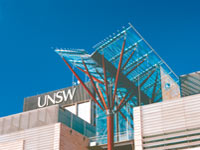|
|||||||||||||||||||||||||||||||||||||||||||||||
| Microelectronic Design and Technology - ELEC4602 | |||||||||||||||||||||||||||||||||||||||||||||||

Description Basic IC processing technology: lithography, oxidation, diffusion, implantation, film deposition, etching, metalisation. IC technologies: Si, GaAs, SiGe, SOS, BiCMOS. Rev. MOS device models. On-chip components: capacitors, inductors, resistors, diodes. CMOS design rules, scaling. Floor planing, cell layout (inc. common centriod) and routing. Corner and Monto Carlo simulations. CMOS analogue building blocks: current mirrors, differential stage, active load. Noise sources and analysis. CMOS operational amplifiers. D/A converters and A/D converters. Oscillators, PLLs, Schmitt triggers and charge pumps. Static and dynamic CMOS gates and flip-flops. CMOS digital bulding blocks: level shifters, decoders, multiplexers, tri-states, buffers and adders. Memories: ROM, SRAM and DRAM cell design; Sense amplifiers. Introduction to MEMS. IO circuits, ESD, latch-up, assembly techniques and packaging. Interconnects and noise shielding; mixed analogue-digital design. Yield and failure analysis techniques; 6-sigma design.
|
|||||||||||||||||||||||||||||||||||||||||||||||


